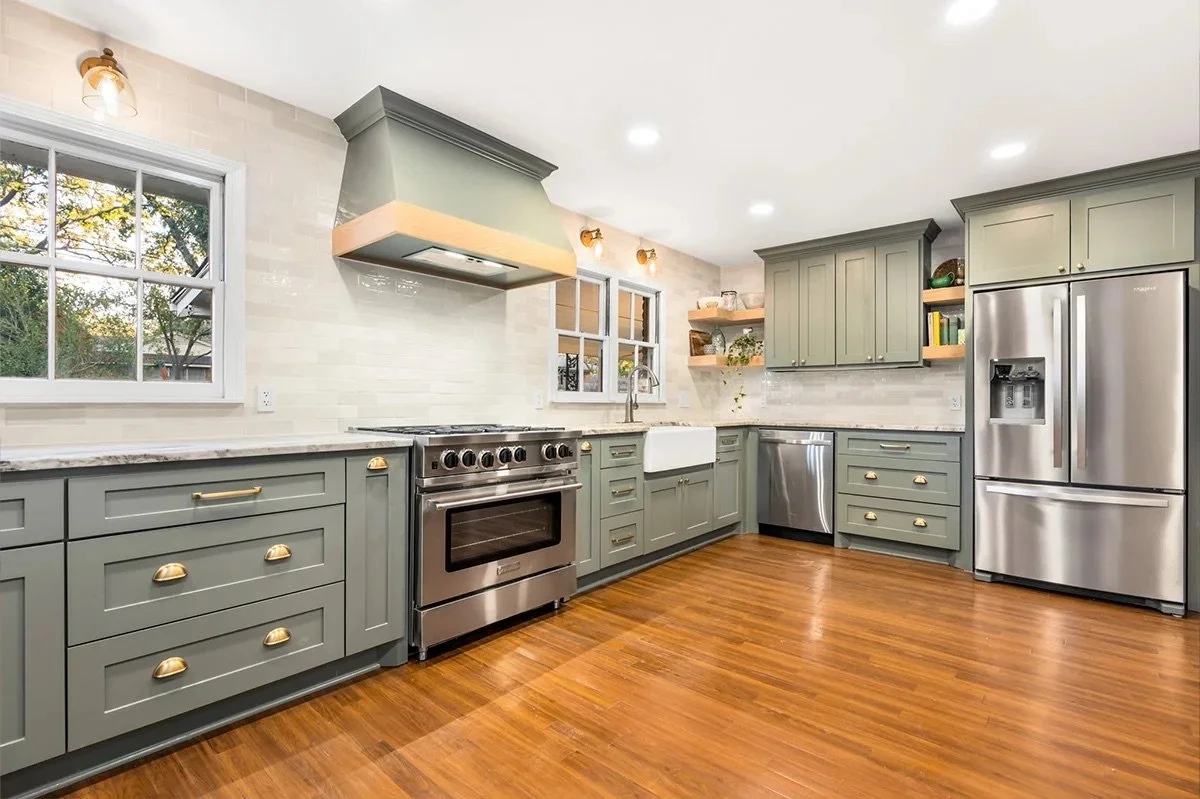Building for Multi-Generational Living: Designing Homes that Accommodate Families
At Vaughn Construction, we believe that a home is not just a place, but a reflection of the people who reside within it. In recent years, multi-generational living has become increasingly popular as families seek to create harmonious and supportive environments for all generations. Building a home that accommodates the needs of multiple family members requires thoughtful design and meticulous planning. In this blog post, we will explore the benefits of multi-generational living and share how Vaughn Construction can help you design a home that fosters strong family bonds and lasting memories.
Embracing Family Connections: Multi-generational living brings family members closer, enabling them to share their lives, experiences, and support. Grandparents, parents, and children living under one roof create a strong sense of belonging and interconnectedness. At Vaughn Construction, we understand the importance of spaces that encourage family interactions while respecting individual privacy. From communal gathering areas to secluded nooks, our custom home designs foster harmonious family connections.
Functional Floor Plans: Designing a multi-generational home requires a functional floor plan that accommodates diverse needs. Separate living spaces, such as in-law suites or guest houses, provide privacy and independence while keeping family members close. Thoughtfully placed common areas, like a large kitchen or a cozy family room, become central hubs for shared activities and gatherings. Our team at Vaughn Construction will work with you to create a floor plan that optimizes the use of space, ensuring everyone's comfort and convenience.
Accessibility and Universal Design: Incorporating accessibility features and universal design principles is vital when building for multi-generational living. By ensuring that spaces are easily accessible to all family members, including those with mobility challenges, you create a home that is welcoming and inclusive. At Vaughn Construction, we are well-versed in integrating universal design elements into our custom homes, such as wide doorways, step-free entrances, and accessible bathrooms, making your home comfortable and safe for every generation.
Flexibility for Changing Needs: As families grow and evolve, so do their living requirements. Building for multi-generational living allows for greater flexibility to adapt to changing needs over time. Spare rooms can be repurposed as nurseries, offices, or guest rooms. Additional living spaces can accommodate new family members or serve as an independent living area for older adults. By considering future needs during the design process, your custom home becomes a sustainable investment for generations to come.
Intergenerational Bonding: Living together in a multi-generational home fosters strong intergenerational bonding. Children can form close relationships with their grandparents, benefitting from their wisdom and experiences. Grandparents, in turn, can play an active role in their grandchildren's lives, creating cherished memories that last a lifetime. Vaughn Construction designs homes that encourage these connections, providing spaces that promote shared activities and quality time together.
Building a home for multi-generational living is an exceptional way to strengthen family bonds and create a supportive environment for all family members. At Vaughn Construction, we are committed to designing homes that accommodate diverse needs and celebrate the uniqueness of every family. Our functional floor plans, accessible designs, and emphasis on intergenerational bonding ensure that your custom home becomes a haven of love, warmth, and togetherness. Embrace the beauty of multi-generational living with Vaughn Construction and let us create a home where generations can thrive together. Contact us today to begin the journey of building a home that is truly for the whole family.

